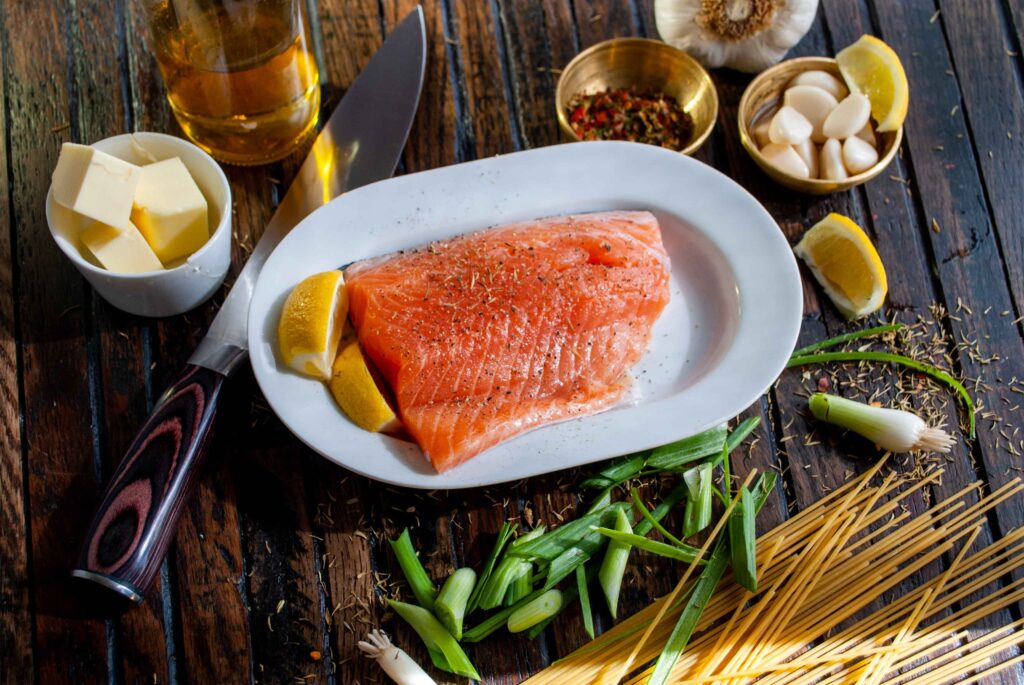Protein is an essential nutrient for those engaging in regular physical activity, as it plays a crucial role in muscle growth and repair. Adequate protein intake is vital for building and maintaining muscle mass, as well as for improving overall physical performance. In this article, we will discuss the importance of protein in a fitness regimen, the recommended daily intake of protein for active individuals, and the best sources of protein to include in a fitness diet.
The Importance of Protein in a Fitness Regimen
Protein is a macronutrient that is made up of amino acids. These amino acids are the building blocks of muscle tissue, and therefore, are essential for muscle growth and repair. When you engage in regular physical activity, such as weightlifting or endurance training, you are causing small tears in your muscle fibers. These tears are then repaired by the body, which leads to muscle growth and strength. Adequate protein intake is essential for the repair and growth of these muscle fibers.
In addition to muscle growth and repair, protein also plays a vital role in other aspects of physical performance. Protein helps to regulate hormones, such as insulin, which is important for maintaining energy levels during exercise. Protein is also important for maintaining a healthy immune system, which can be compromised during intense physical activity.
Recommended Daily Protein Intake for Active Individuals
The recommended daily intake of protein for sedentary individuals is 0.8 grams per kilogram (0.36 grams per pound) of body weight. However, for active individuals, the recommended daily intake is 1.2-1.7 grams per kilogram (0.54-0.77 grams per pound) of body weight. This higher protein intake is necessary to support the increased demand for protein in the body caused by regular physical activity.
It is important to note that individual protein needs can vary based on factors such as age, sex, muscle mass, and activity level. For example, older adults and athletes may require even more protein than the recommended daily intake. It is recommended to consult a healthcare professional or a registered dietitian to determine an individual’s specific protein needs.
Best Sources of Protein for a Fitness Regimen
There are many sources of protein that can be included in a fitness regimen. Some of the best sources of protein include:
-
Lean meats: Chicken, turkey, and lean cuts of beef and pork are excellent sources of protein. They also provide essential nutrients such as iron and zinc.
-
Fish: Fish, such as salmon and tuna, are high in protein and also provide important omega-3 fatty acids, which have anti-inflammatory properties.
-
Eggs: Eggs are a versatile and convenient source of protein. They are also a good source of other essential nutrients, such as vitamin D and choline.
-
Dairy products: Milk, cheese, and yogurt are all good sources of protein. Greek yogurt is a particularly good choice as it is high in protein and low in sugar.
-
Beans and legumes: Beans and legumes, such as lentils and chickpeas, are an excellent source of protein for vegetarians and vegans.
-
Soy products: Tofu, tempeh, and edamame are all good sources of protein for vegetarians and vegans.
Protein Supplements
In addition to whole food sources, protein supplements, such as whey and casein powders, can be used to increase protein intake. These supplements are convenient and can be easily added to smoothies or shakes. However, it is important to note that whole food sources of protein should still make up the majority of protein intake. Supplements should only be used to supplement a healthy diet, not as a replacement for whole foods.
Timing of Protein Intake
The timing of protein intake is also crucial for muscle growth and repair. Consuming protein both before and after exercise can help to optimize muscle protein synthesis. It is recommended to consume 20-40 grams of protein within 2 hours of exercise for optimal muscle recovery.
Consuming protein before exercise can help to preserve muscle mass during intense physical activity and may also improve overall physical performance. Consuming protein after exercise is also important, as it helps to initiate the muscle repair and growth process.
Eating a meal or snack containing protein both before and after exercise is the best way to ensure that the body has enough amino acids for muscle repair and growth. However, for those who find it difficult to eat a whole meal before or after exercise, a protein shake or bar can be a convenient alternative.
In summary, protein is an essential nutrient for those engaging in regular physical activity, and it is important to consume enough protein and to time protein intake properly to optimize muscle growth and repair. A well-planned diet that includes a variety of protein-rich foods and supplements can help active individuals achieve their fitness goals. However, it is always recommended to consult a healthcare professional or registered dietitian to determine specific protein needs and to develop a personalized nutrition plan.
Read in Spanish: Proteína

